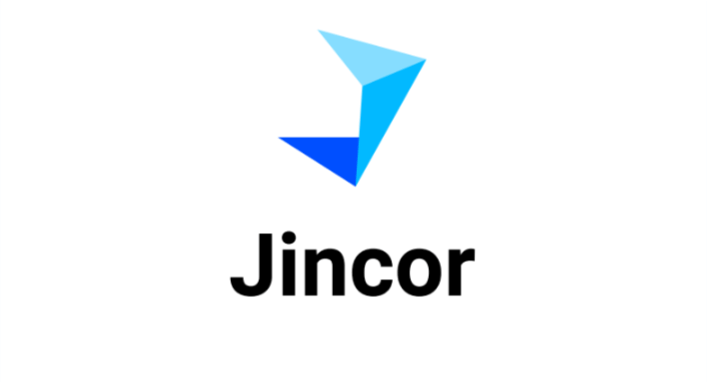Jincor is a smart contract platform aimed at businesses of any scale and industry that would like to join the blockchain revolution without spending huge sums of money to overcome the present legal and technical challenges. The Jincor team, led by CEO Vlad Kirichenko and COO Vagan Abelyan, has been developing the platform since May 2016. Unlike many other smart contract projects, Jincor has successfully undergone closed beta testing with over 30 small and medium-sized businesses across different industries.
Closed Beta functionality allows businesses to register on the platform, send invitations to employees, define their roles, create both public and private discussion channels with end-to-end encryption, and establish new business contacts with Jincor’s built-in search.
Public Beta launch is scheduled to the end of November – beginning of December with some more major functions added to the Closed Beta set of feature, including basic labour smart contract template.
But the existing features are only a drop in the bucket compared to what the Jincor team would like to accomplish in the long run. The full set of those will include corporate cryptocurrency accounts with multi signatures, smart contract templates for a wide range of industry-specific use cases, which will make it possible for companies to transfer all the legal and contractual relationships into a trustless blockchain environment, and even a decentralized arbitration system, which will allow settling disputes arising with the execution of smart contracts within the digital jurisdiction.
Still not persuaded if Jincor is such a good idea? Hence this: single developer who understands how to make smart contracts on the Ethereum network in Solidity, a contract-oriented, high-level language for implementing smart contracts, can cost a business as much as $250,000 annually. What’s more, businesses also need substantial legal help to navigate the barren landscape of smart contract legislature. Consequently, only some of the largest enterprises in the world, such as Microsoft or IBM, are developing blockchain-based solutions, leaving businesses with less resources behind and that overall limits technology adoption and doesn’t allow it to become an enterprise commodity it should be.
To address this issue and empower small and medium-sized businesses to leverage the same cutting-edge technologies as are available to large enterprises, the Jincor team aims to integrate all companies, employees, and business assets into a unified blockchain ecosystem that would make relations truly fast, transparent, efficient, and reliable.
Businesses who would decide to join this ecosystem would benefit in three major ways:
- Legal support – Jincor provides consulting on legal issues related to the corporate usage of cryptocurrencies, smart contracts, and other platform features in the form of detailed instructions and explanations developed by Jincor’s legal department in cooperation with external partners across the globe.
- Easy-to-use smart contracts – Jincor provides corporate smart contracts templates that allow anyone to instantly create complex, secure, and valid smart contracts without any coding whatsoever.
- Fully compliant approach – Every entity that joins the Jincor ecosystem is required to go through a strict verification process to meet regulatory and corporate compliance policies.
“Overall, our goal is to build a private blockchain and the platform that will make it possible even for a smart-enough (tech-savvy, heavy iPad user) 5-year-old kid to register in Jincor ecosystem, initiate the smart contract and pay to a supplier. And that’s all in a very user-friendly and legal way. In our opinion, this will lead to a complete changeover in the corporate interactions model, which will eliminate injustice, defaults on business commitments, human mistakes factor and make small businesses from all around the world much closer to blockchain technologies and vice versa,” describes the Jincor team its long-term vision in the official business summary.
The potential market that Jincor could capture is huge. According to an Accenture research, investment banks alone could save up to $12 billion annually by adopting blockchain and smart contracts. By 2022, smart contracts will be in use by more than 25 percent of global organizations, predicts Gartner. Some of the most cited smart contract uses cases include digital identity management, company record keeping, securities, international transfers of goods, the automation of the otherwise confusing and manual process behind a mortgage contract, property transfers, supply chain, and many others.
That’s great news for Jincor backers because the value of JCR tokens, the only means of payment for Jincor’s services, will depend directly on how popular Jincor will be in the future. Jincor ICO starts on December 1, and Jincor will put on sale 76 percent of the total supply of 35,000,000 JCR tokens at a price of $1 per 1 JCR. During its ICO, Jincor hopes to raise $26,6 million, and the Jincor team already has come up with a detailed roadmap and clear go-to-market strategy that describes what lies ahead for Jincor in the near future.
By the end of 2018, the Jincor team expects to have over 10,000 business customers participating in open beta as a result of a planned expansion into Europe and Asia, two regions which are the most forward-thinking in terms of cryptocurrency legislature.
If you would like to help the Jincor team realize their vision of blockchain-powered future where routine and mundane tasks are efficiently automated with smart contracts, visit the official website, where you can find more information about the project. You can also contact the Jincor team on Facebook, Twitter, or Telegram. Alternatively, follow the project on Medium, Reddit, or Bitcointalk.
